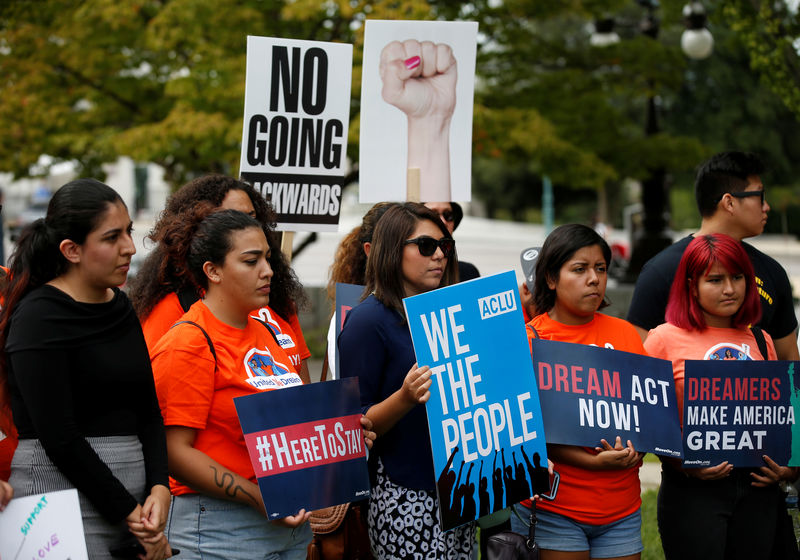WASHINGTON (Reuters) - Conservative Republicans in Congress on Monday unveiled their ideas for what should happen to so-called 'Dreamer' immigrants when an Obama-era program expires in March, touting tougher restrictions than those proposed by Democrats.
The bill offered by Republican Senators Thom Tillis and James Lankford was in response to President Donald Trump's move to end former President Barack Obama's Deferred Action for Childhood Arrivals (DACA) program. Trump gave Congress six months to write replacement legislation.
DACA temporarily shielded from deportation certain undocumented immigrants, known as 'Dreamers,' who were brought to the United States as children by family, many from Central America. The program allows work permits and other protections for around 800,000 people.
The Tillis-Lankford measure would bar Dreamers from applying for citizenship for at least 15 years and would cover fewer people than a Democratic proposal.
Trump has previously voiced support of a Democratic "Dream Act" bill, but wants to add new border security measures to it. Top Senate Democrat Chuck Schumer and top House of Representatives Democrat Nancy Pelosi have said that in a meeting with Trump they had discussed a path to citizenship for Dreamers after eight years.
Lankford told reporters at a press conference that he recently had a long telephone conversation with Trump and briefed him on the legislation he and Tillis were crafting.
Trump "was very supportive of the concepts, saying that is the right way to go," said Lankford.
Democrats are waiting for the White House to publish a list of 'principles' to guide Dreamer legislation. It was not clear whether those principles would be influenced by the Republicans' bill.
Senator Dick Durbin, the No. 2 Senate Democrat who has been pushing Dreamer legislation for 16 years, said the Republicans' bill "falls short" because it "excludes tens of thousands of Dreamers" and would require those that do qualify to waive certain legal rights that could allow for deportations without due process.
Nevertheless, there is bipartisan hope in Congress that differences can be ironed out now that Trump, who anchored his 2016 presidential campaign on an anti-immigration platform, says he wants to protect the Dreamers.
"These are kids that literally do not have a home anywhere," Lankford said.

"They do not remember a home country they came from originally. They are not really considered (at) home here ... In American law we don't hold children accountable for the actions of their parents."